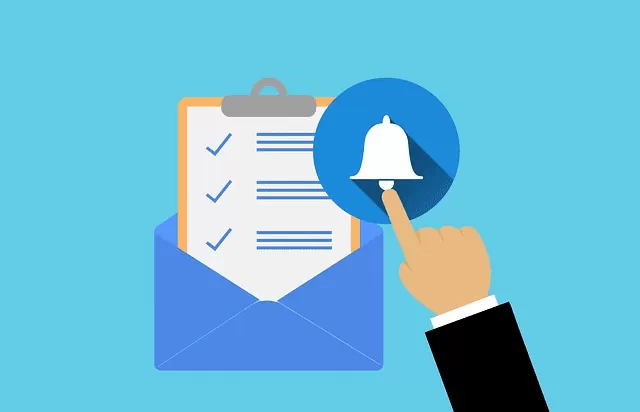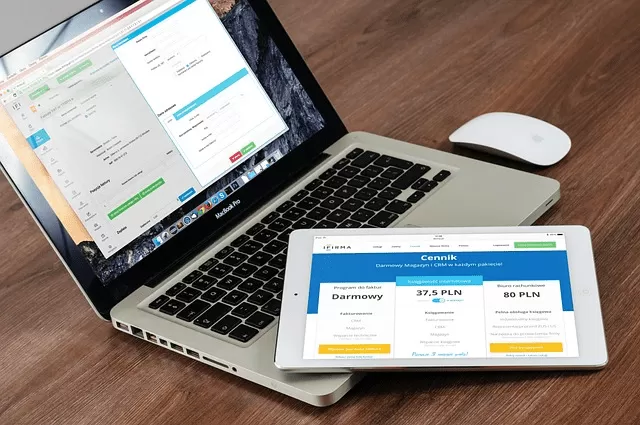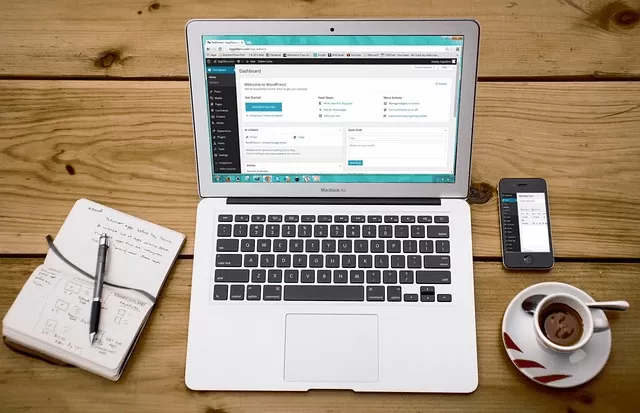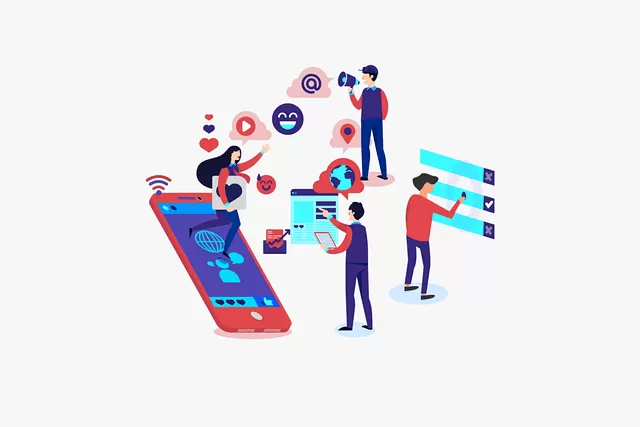How to Convert a Website into an App (Website to App Guide 2023) | Create App from Website | Convertixo
In this digital era, converting your website into an app is not just a trend, but a necessity. A mobile app enables businesses to reach their audience more effectively, offering a more personalized user experience and fostering customer loyalty. It also opens up new avenues for revenue and growth. But how exactly do you make this shift? That’s where Convertixo comes in.

Convertixo is your reliable partner in this digital transformation journey. We’re here to simplify the process of converting your website into an app, making it hassle-free, efficient, and within your budget. But we don’t just stop at conversion, we walk with you every step of the way, offering comprehensive guidance to ensure you get the most out of your new app.

Stay with us as we delve deeper and unveil the crucial steps to transform your website into an interactive and engaging app. Remember, we’re in this together!
Native vs Hybrid – Which Kind of App Should You Create from Website?
Choosing between a native app and a hybrid one largely depends on your business objectives and the demographic details of your mobile app developers and users. Native apps offer tailor-made solutions for specific mobile devices, enhancing the user experience. They are developed with the mobile app platform in mind, whether it’s the Apple App Store or Google Play Store.

Mobile app developers tend to favor native apps as they can tap into the advanced features of mobile devices and deliver superior performance. If your business is targeting users who frequent the Apple App Store, creating your own app as a native app is a logical step. It can provide an edge, given the store’s stringent app development standards, which ensure only top-quality apps reach its audience.
Yet, web apps present their own set of advantages. They are essentially mobile versions of websites, making web content readily accessible across all mobile devices. If your website is already well-optimized as a mobile site, a web app may serve as an effective bridge between your site and a full-fledged mobile app.

In conclusion, the choice between a native app and a hybrid one hinges on your business needs and the preferences of your mobile app users. Whether your focus is delivering a stellar user experience on the Apple App Store or ensuring your web content is accessible across all mobile devices, Convertixo can help you navigate this crucial phase of app development.
6 Reasons to Turn a Website into an App
Leveraging Native Features to Build Apps with Convertixo
With Convertixo, an advanced app converter, you can effectively transform your website into a simple app. This process not only enables you to reach your existing users more efficiently but also allows you to tap into additional markets.

One of the key benefits of this transformation is the ability to leverage native features. These are elements that are unique to the platform for which the app is developed, and they can significantly enhance the overall user experience. Be it iOS or Android, each operating system has its own set of native features that developers can utilize to build apps that deliver high performance and provide excellent user interfacing.

In the vast ecosystem of mobile applications, making your app stand out can be challenging. However, with Convertixo, you’ll have all the apps in the relevant category at your fingertips, enabling you to analyze successful trends and implement them in your own application.

In essence, Convertixo simplifies the app development process, providing a seamless journey from your current website to a future-proof mobile app that is ready to conquer the digital market.
Convert your website to an iOS and Android mobile app with AI – for All App Users
Creating an Android App from Your Website
Transforming your website into an Android app can tap into a vast market of Android device users. With an intuitive app builder, this process becomes a smooth journey. It’s not just about creating mobile apps, but about creating an experience that retains users.
Developing an iOS App – The Basics of Apple App Store
Creating an iOS app requires a clear vision of your app project. With iOS’s strict guidelines, focusing on app content is key. A captivating app icon can also make your app stand out from others in the Apple App Store.
Streamlining App Development with an App Builder
An app builder simplifies the process of turning your website into a mobile device-specific application. It provides various tools to develop a stunning app while minimizing the complexities of the app development platform and process.
Navigating the App Development Platform Landscape
Understanding the nuances of different app development platforms, such as the Google Play Store, can play a crucial role in your android app’s success. It’s not just about creating an Android app; it’s about creating an app that resonates with the platform’s users
Advantages of Push Notifications for Mobile Apps
Push notifications are a powerful tool for driving user engagement and retention within android mobile app. These alerts inform users about updates, offers, and other relevant activities related to your mobile app, fostering a continuous connection between the app and the user.

- Instant Updates: Push notifications provide real-time updates about new features or functionalities in your mobile app.
- Personalized Communication: They can be customized to match user preferences, delivering a personalized app experience.
- User Retention: Regular notifications can help keep users engaged with your mobile app, bolstering retention rates.
- Boosted Engagement: Push notifications can prompt users to interact with your mobile app more frequently.
- Promotional Offers: They can be used to inform users about deals, promotions, and special offers.
- User Acquisition: Promoting your mobile app through push notifications can attract new users.
- Direct Channel of Communication: They serve as a direct line of communication with your users.
- Enhanced User Experience: They can be used to provide useful information, enhancing the overall user experience.

The Role of App Stores in Website App Conversion
The decision to convert your website into a mobile app entails considering the ecosystem of various app stores. The two major players, Google Play Store for Android apps, and Apple App Store for iOS apps, dominate the various app stores scene. Each of these app stores have their own set of guidelines and requirements that need to be adhered to during the conversion process.

App stores are the gateway through which users discover and download mobile apps. They offer a platform for visibility and discovery, making your web app accessible to a broad audience. To have your website app appear prominently in the app stores, it’s important to optimize it according to the unique algorithms that each store uses to rank apps.

An optimized Android app, for example, can enjoy more downloads on the Google Play Store, reflecting in higher rankings and visibility. Similarly, a well-optimized iOS app can stand out in the crowded Apple App Store, attracting more users.

With their far-reaching influence, app stores play a pivotal role in the success of your mobile app. Hence, understanding the intricacies of focusing on creating a high-quality website app that aligns with the guidelines of these app stores can significantly boost your mobile app’s performance and reach.
Can I develop my own app without coding?
The beauty of modern app development platforms lies in their ability to democratize the app creation process. You can indeed develop your app without a background in coding. By leveraging user-friendly interfaces, drag-and-drop functionalities, these platforms empower individuals and businesses to create robust, tailor-made apps in just a few clicks.

Major players like Convertixo have taken this user-centric approach a step further, offering round-the-clock chat support to users. This ensures that any questions or issues you might encounter during the development process are addressed promptly and efficiently. As a result, you can focus on what truly matters: creating an app that offers a unique, engaging experience for your users.

When it comes to the economics of app development, using an app builder can help significantly reduce development costs. Traditional app development can be a costly and time-consuming endeavor, often requiring a complex mix of front-end and back-end programming. In contrast, app builders streamline the process, providing all the necessary tools and functionalities at a fraction of the cost.
Benefits of Mobile App
Once your app is up and running, it’s time to reap the benefits. For businesses operating in the realm of ecommerce, a mobile app can be a game-changer. The ability to send push notifications about new products and promotions, provide a seamless shopping experience, and offer a convenient platform for customer reviews and feedback can drive ecommerce sales and build customer loyalty.

In addition to these benefits, integrating features such social media connectivity can further enhance the user experience. These functionalities not only encourage user interaction but also provide an additional revenue stream and a powerful avenue for organic marketing.

In conclusion, developing an app without coding has never been more feasible or exciting. With the right tools and support at your disposal, you can create a high-quality, user-centric app that drives engagement and contributes to your business’s bottom line. Whether you’re looking to tap into new markets, increase ecommerce sales or simply create a digital extension of your brand, an app builder can help you achieve your goals in a cost-effective and efficient manner.
Variables to Consider When Converting Website to App
A Comprehensive Approach to Create Mobile Apps
In the process of converting websites to mobile applications, a comprehensive approach is recommended. Leveraging app builders, you can create mobile apps without any coding expertise, opening up opportunities for individuals and businesses alike.

Utilizing Unlimited Push Notifications
In the realm of mobile applications, push notifications have emerged as a potent tool. They ensure that you can send push notifications to your users, a few reasons for keeping them engaged and fostering a sense of direct communication.
iOS Apps: The Apple Way
Developing iOS apps has become simpler with the advent of user-friendly app builders. These platforms cater to the specific requirements of iOS devices, ensuring that your app is compatible and optimized for this platform.

Deploying App Builders for Mobile App Development
App builders have revolutionized the app creation process, democratizing it with their user-friendly interfaces and features. Using them, even an average user with no coding background can develop robust mobile applications.
Catering to Mobile Users: Design and Functionality
When converting websites to mobile apps, it’s imperative to prioritize mobile users. The app design should be intuitive, and the functionality should align with the needs and expectations of mobile users.
From Own Website to Mobile App
Converting your own website into a mobile application can be a rewarding endeavor. It allows a website owner to tap into a wider audience, increase engagement, and offer a more personalized user experience.

Android Devices: Building for the Google Ecosystem
The Android platform offers a significant user base that can’t be ignored. When creating apps, it’s important to cater to Android devices, ensuring your app is optimized for different screen sizes and other Android apps and platforms.
The Role of an App Maker in Modern Mobile App Development
The modern app maker has become a powerful tool in the hands of developers and non-developers alike.
eCommerce Stores: Boosting Sales with Mobile Apps
For eCommerce stores, a mobile application can be a game-changer. Not only does it offer a seamless shopping experience to users, but it also provides a platform for push notifications, customer reviews, and feedback.

Collaborating with a Development Team
Even when using an app builder, collaborating with a development team can prove beneficial. They can provide insights into app design, functionality, and optimization, ensuring your app delivers a superior user experience.
How to Convert a Website to Apps with Convertixo in 8 Easy Steps
Follow these Steps to Build App from Website
Step 1: Access Convertixo
The first step in building your new app is to access the Convertixo website. Visit the website URL and explore the features and services it offers. This will give you an initial understanding of the app building process.
Step 2: Register an Account
Next, you need to register an account on the Convertixo platform. This is an effortless process. Enter your details, verify your email, and you’ll be ready to start building your app.
Step 3: Name Your App
Naming your app is one of the most essential steps. Your app’s name should reflect its purpose and the services it offers. Be creative, but keep it simple and easy to remember.
Step 4: Select Your Website URL
Now, you need to enter the website URL that you want to have convert your website into an app. Convertixo will fetch the website content and prepare it for the conversion process. Remember, the better your website, the better your app will be.
Step 5: Add Your App Icon
The next step is to add your app icon. This will be the first thing users see when they find your app in the app store, so make it count. Your icon should be aesthetically pleasing and relevant to your app name and purpose.
Step 6: Configure Push Notifications
When you’ve got the design set, it’s time to configure push notifications. Push notifications are an excellent way to engage with users and keep them updated. Convertixo allows you to easily configure and send push notifications, making user engagement a breeze.
Step 7: Test Your App
Before you launch your app, it’s crucial to test it. Convertixo lets you preview your app, giving you a chance to make necessary adjustments. Ensure the app provides a smooth and intuitive user experience.
Step 8: Publish Your App
Finally, when you’ve tested your app and are happy with it, it’s time to publish. Convertixo simplifies this process, guiding you through the steps to make your new app available for users on various platforms.
After you’ve published your app, you can begin to reap the benefits of having a mobile app for your business. With your app built, your business will have a new avenue to reach and interact with customers, driving growth and success. The app name you chose will become a brand in itself, and the website URL you converted will find a new audience on mobile platforms. Building an app with Convertixo, a premier app converter, is undoubtedly a worthwhile investment.
Features you must add while converting your website into an app
When transforming your website into a mobile application, there are a few key features you should ensure to include. These components can make the difference between a merely functional app and one that truly enhances user experience, helping to retain users and build loyalty.
User Friendly Navigation
One such crucial feature is user-friendly navigation. Not all website designs translate smoothly to the smaller screens of mobile devices, and this is where the importance of a responsive design comes in. The user interface should be intuitive and easy to navigate. If people can’t find what they’re looking for in just a few minutes, they’re likely to abandon the website to an app elsewhere.

Essential Functionalities
Another thing to pay attention to is the inclusion of essential functionalities. Depending on the nature of your website, these could include features like search functions, filtering options, and user profiles. Your app should offer these functionalities in a simplified and efficient manner, enhancing their utility for mobile users.
Robust Security Mechanism
The importance of a robust security mechanism can’t be overstated. This is particularly relevant if your website deals with sensitive user data. Users need to trust that their information is secure when they’re using your website to app it. This includes their login details, personal information, and any payment data if your app includes transactions.
Loading Time
Loading time is another essential factor to consider. In today’s fast-paced world, users expect quick responses. Your Android app should be optimized to load swiftly, ensuring that users can access your content without having to wait for more than a few seconds.

Aesthetics
Now, let’s talk about aesthetics. The design, color scheme, and visual elements should be attractive and in line with your brand’s identity. In particular, your app icon plays a vital role in drawing users in. It should be visually appealing, representative of your app’s function, and easily recognizable.
Push Notifications
Engagement features such as push notifications can be a significant advantage. They remind users to revisit your app, providing them with updates, offers, or other relevant information. However, they should be used judiciously to avoid annoying users.

Feedback Mechanism
A feedback mechanism is another feature you might want to consider. This could be as simple as a rating system or a more complex feedback form. This gives users a way to communicate with you, providing valuable insights on how to improve your app.

Social media Integration
Social media integration is another feature you should not overlook. This provides users with a way to share your app content on their social media profiles, effectively serving as free promotion for your app.
When deciding on the app name, remember that it should be distinctive yet simple to remember. It should give users a hint about what the app is about, helping your app to stand out in the crowded app marketplace.

Finally, it’s important to remember that converting a website into an app is not a one-time job. Regular updates are necessary to fix bugs, introduce new features, and keep up with the changing needs and expectations of users.
In sum, converting your website into an app can offer several benefits. Not only does it provide a more engaging platform for your users, but it also opens up new avenues for growth and customer engagement. However, it’s essential to keep in mind that the success of your website into an app also depends largely on its usability, functionality, and how well it meets the needs of your users.
Final Thoughts:
Transforming your website into a mobile application with Convertixo can revolutionize your digital presence, offering a more engaging platform for your users and opening up new avenues for growth. Key features to include are user-friendly navigation, essential functionalities, robust security mechanisms, swift loading times, and attractive aesthetics.

The inclusion of engagement features like push notifications and feedback mechanisms can significantly enhance user experience. Personalization options, social media integration, and a memorable app name are also crucial. However, remember that maintaining an app requires regular updates to meet users’ changing needs.

With Convertixo, you get these benefits and much more at affordable prices, making the journey from website to app seamless and rewarding.
Convert your website into an application today and step into the future of digital interaction!
FAQs on Creating App from Website
How do I make an app from a website link?
Creating an app from a website link is relatively straightforward and can be accomplished with the use of a mobile app builder. All you need is your website’s URL, some basic information about your business or organization, and a few images or logos for custom branding. Once you have everything ready to go, simply follow the instructions provided by the mobile app builder to generate your own app. After your app is created, it will be available for download on the website and through various app stores and services. With a few simple steps, you’ll have your very own mobile app ready to go!
Can I create an app for free?
Yes, you can create an app for free. There are many online mobile app builders that offer a range of features and options for free. Most of these services provide you with the necessary tools to design and develop your own app, including interface elements, custom branding, and more. However, if you want to publish your app on Google Play or the App Store, you may need to invest in a paid plan. Additionally, if you require more advanced features or custom development, it’s best to work with an experienced app builder like Convertixo who can help bring your vision to life.
What is the best website to app converter?
The best website to app converter is Convertixo. Our platform provides a comprehensive set of tools and features that allow you to quickly create an app from your website URL. With an easy-to-use interface, and the ability to add custom elements and features, our platform makes it easy for anyone – regardless of technical skill or experience – to generate a high-quality mobile app at an affordable price. Additionally, our platform allows you to publish your app on Google Play and the App Store for free. Get started today and get your own website-based app up and running!
Read More:
